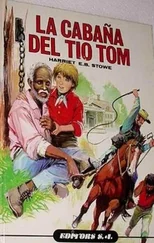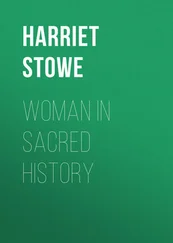Harriet Stowe - My Wife and I. Harry Henderson's History
Здесь есть возможность читать онлайн «Harriet Stowe - My Wife and I. Harry Henderson's History» — ознакомительный отрывок электронной книги совершенно бесплатно, а после прочтения отрывка купить полную версию. В некоторых случаях можно слушать аудио, скачать через торрент в формате fb2 и присутствует краткое содержание. ISBN: , Издательство: Иностранный паблик, Жанр: foreign_prose, foreign_language, на английском языке. Описание произведения, (предисловие) а так же отзывы посетителей доступны на портале библиотеки ЛибКат.
- Название:My Wife and I. Harry Henderson's History
- Автор:
- Издательство:Иностранный паблик
- Жанр:
- Год:неизвестен
- ISBN:http://www.gutenberg.org/ebooks/47874
- Рейтинг книги:5 / 5. Голосов: 1
-
Избранное:Добавить в избранное
- Отзывы:
-
Ваша оценка:
- 100
- 1
- 2
- 3
- 4
- 5
My Wife and I. Harry Henderson's History: краткое содержание, описание и аннотация
Предлагаем к чтению аннотацию, описание, краткое содержание или предисловие (зависит от того, что написал сам автор книги «My Wife and I. Harry Henderson's History»). Если вы не нашли необходимую информацию о книге — напишите в комментариях, мы постараемся отыскать её.
My Wife and I. Harry Henderson's History — читать онлайн ознакомительный отрывок
Ниже представлен текст книги, разбитый по страницам. Система сохранения места последней прочитанной страницы, позволяет с удобством читать онлайн бесплатно книгу «My Wife and I. Harry Henderson's History», без необходимости каждый раз заново искать на чём Вы остановились. Поставьте закладку, и сможете в любой момент перейти на страницу, на которой закончили чтение.
Интервал:
Закладка:
In the midst of our large family, of different ages, of vigorous growth, of great individuality and forcefulness of expression, my mother's was the administrative power. My father habitually referred everything to her, and leaned on her advice with a childlike dependence. She read the character of each, she mediated between opposing natures: she translated the dialect of different sorts of spirits, to each other. In a family of young children, there is a chance for every sort and variety of natures; and for natures whose modes of feeling are as foreign to each other, as those of the French and the English. It needs a common interpreter, who understands every dialect of the soul, thus to translate differences of individuality into a common language of love.
It has often seemed to me a fair question, on a review of the way my mother ruled in our family, whether the politics of the ideal state in a millennial community, should not be one equally pervaded by mother-influences.
The woman question of our day, as I understand it is this. – Shall MOTHERHOOD ever be felt in the public administration of the affairs of state? The state is nothing more nor less than a collection of families, and what would be good or bad for the individual family, would be good or bad for the state.
Such as our family would have been, ruled only by my father, without my mother, such the political state is, and has been; there have been in it "conscript fathers," but no "conscript mothers;" yet is not a mother's influence needed in acts that relate to the interests of collected families as much as in individual ones?
The state, at this very day, needs an influence like what I remember our mother's to have been, in our great, vigorous, growing family, – an influence quiet, calm, warming, purifying, uniting – it needs a womanly economy and thrift in husbanding and applying its material resources – it needs a divining power, by which different sections and different races can be interpreted to each other, and blended together in love – it needs an educating power, by which its immature children may be trained in virtue – it needs a loving and redeeming power, by which its erring and criminal children may be borne with, purified, and led back to virtue.
Yet, while I thus muse, I remember that such women as my mother are those to whom in an especial manner all noise and publicity and unrestful conflict are peculiarly distasteful. My mother had that delicacy of fibre that made any kind of public exercise of her powers an impossibility. It is not peculiarly a feminine characteristic, but belongs equally to many men of the finest natures. It is characteristic of the poets and philosophers of life. It is ascribed by the sacred writers to Jesus of Nazareth, in whom an aversion for publicity and a longing for stillness and retirement are specially indicated by many touching incidents. Jesus preferred to form around him a family of disciples and to act on the world through them, and it is remarkable that he left no writings directly addressed to the world by himself, but only by those whom he inspired.
Women of this brooding, quiet, deeply spiritual nature, while they cannot attend caucuses, or pull political wires or mingle in the strife of political life, are yet the most needed force to be for the good of the State. I am persuaded that it is not till this class of women feel as vital and personal responsibility for the good of the State, as they have hitherto felt for that of the family, that we shall gain the final elements of a perfect society . The laws of Rome, so said the graceful myth, were dictated to Numa Pompilius, by the nymph, Egeria. No mortal eye saw her. She was not in the forum, or the senate. She did not strive, nor cry, nor lift up her voice in the street, but she made the laws by which Rome ruled the world. Let us hope in a coming day that not Egeria, but Mary, the mother of Jesus, the great archetype of the Christian motherhood, shall be felt through all the laws and institutions of society. That Mary, who kept all things and pondered them in her heart – the silent poet, the prophetess, the one confidential friend of Jesus, sweet and retired as evening dew, yet strong to go forth with Christ against the cruel and vulgar mob, and to stand unfainting by the cross where He suffered!
From the time that my mother discovered my store of manuscripts, she came into new and more intimate relation with me. She took me from the district school, and kept me constantly with herself, teaching me in the intervals of domestic avocations.
I was what is called a mother's-boy, as she taught me to render her all sorts of household services, such as are usually performed by girls. My two older sisters, about this time, left us, to establish a seminary in the neighborhood, and the sister nearest my age went to study under their care, so that my mother said, playfully, she had no resource but to make a girl of me. This association with a womanly nature, and this discipline in womanly ways, I hold to have been an invaluable part of my early training. There is no earthly reason which requires a man, in order to be manly, to be unhandy and clumsy in regard to the minutiæ of domestic life; and there are quantities of occasions occurring in the life of every man, in which he will have occasion to be grateful to his mother, if, like mine, she trains him in woman's arts and the secrets of making domestic life agreeable.
But it is not merely in this respect that I felt the value of my early companionship with my mother. The power of such women over our sex is essentially the service rendered us in forming our ideal, and it was by my mother's influence that the ideal guardian, the "shadow wife," was formed, that guided me through my youth.
She wisely laid hold of the little idyl of my childhood, as something which gave her the key to my nature, and opened before me the hope in my manhood of such a friend as my little Daisy had been to my childhood. This wife of the future she often spoke of as a motive. I was to make myself worthy of her. For her sake I was to be strong, to be efficient, to be manly and true, and above all pure in thought and imagination and in word.
The cold mountain air and simple habits of New England country life are largely a preventive of open immorality; but there is another temptation which besets the boy, against which the womanly ideal is the best shield – the temptation to vulgarity and obscenity.
It was to my mother's care and teaching I owe it, that there always seemed to be a lady at my elbow, when stories were told such as a pure woman would blush to hear. It was owing to her, that a great deal of what I supposed to be classical literature both in Greek and Latin and in English was to me and is to me to this day simply repulsive and disgusting. I remember that one time when I was in my twelfth or thirteenth year, one of Satan's agents put into my hand one of those stories that are written with an express purpose of demoralizing the young – stories that are sent creeping like vipers and rattle-snakes stealthily and secretly among inexperienced and unguarded boys hiding in secret corners, gliding under their pillows and filling their veins with the fever poison of impurity. How many boys in the most critical period of life are forever ruined, in body and soul, by the silent secret gliding among them of these nests of impure serpents, unless they have a mother, wise, watchful, and never sleeping, with whom they are in habits of unreserved intimacy and communion!
I remember that when my mother took from me this book, it was with an expression of fear and horror which made a deep impression on me. Then she sat by me that night, when the shadows were deepening, and told me how the reading of such books, or the letting of such ideas into my mind would make me unworthy of the wife she hoped some day I would win. With a voice of solemn awe she spoke of the holy mystery of marriage as something so sacred, that all my life's happiness depended on keeping it pure, and surrounding it only with the holiest thoughts.
Читать дальшеИнтервал:
Закладка:
Похожие книги на «My Wife and I. Harry Henderson's History»
Представляем Вашему вниманию похожие книги на «My Wife and I. Harry Henderson's History» списком для выбора. Мы отобрали схожую по названию и смыслу литературу в надежде предоставить читателям больше вариантов отыскать новые, интересные, ещё непрочитанные произведения.
Обсуждение, отзывы о книге «My Wife and I. Harry Henderson's History» и просто собственные мнения читателей. Оставьте ваши комментарии, напишите, что Вы думаете о произведении, его смысле или главных героях. Укажите что конкретно понравилось, а что нет, и почему Вы так считаете.












